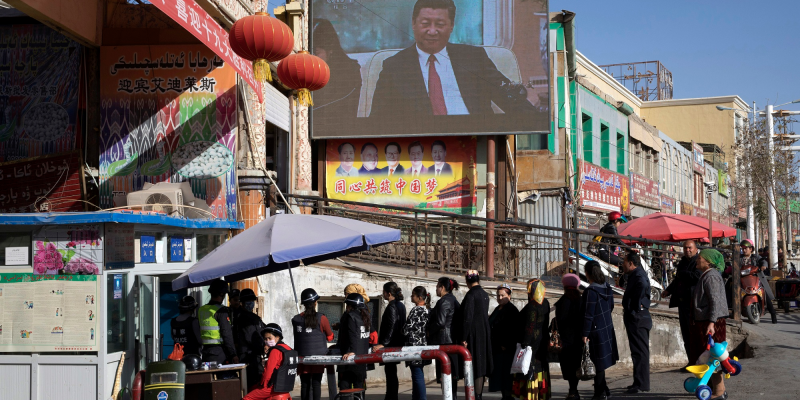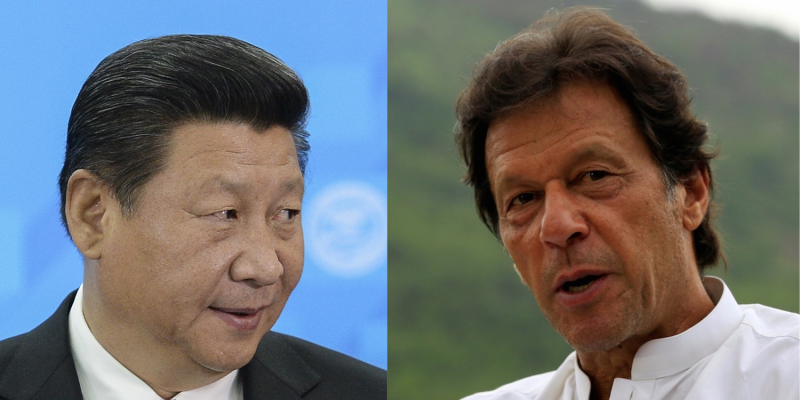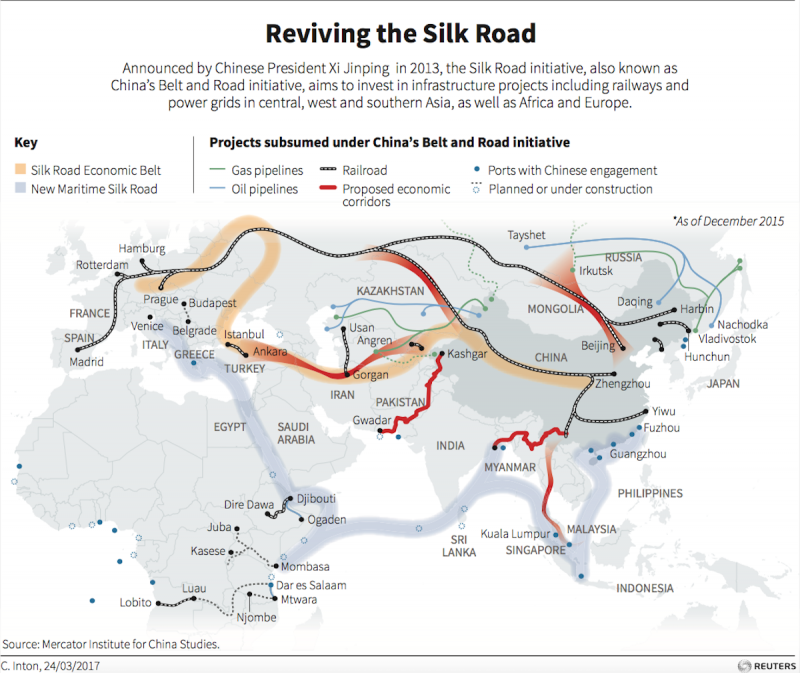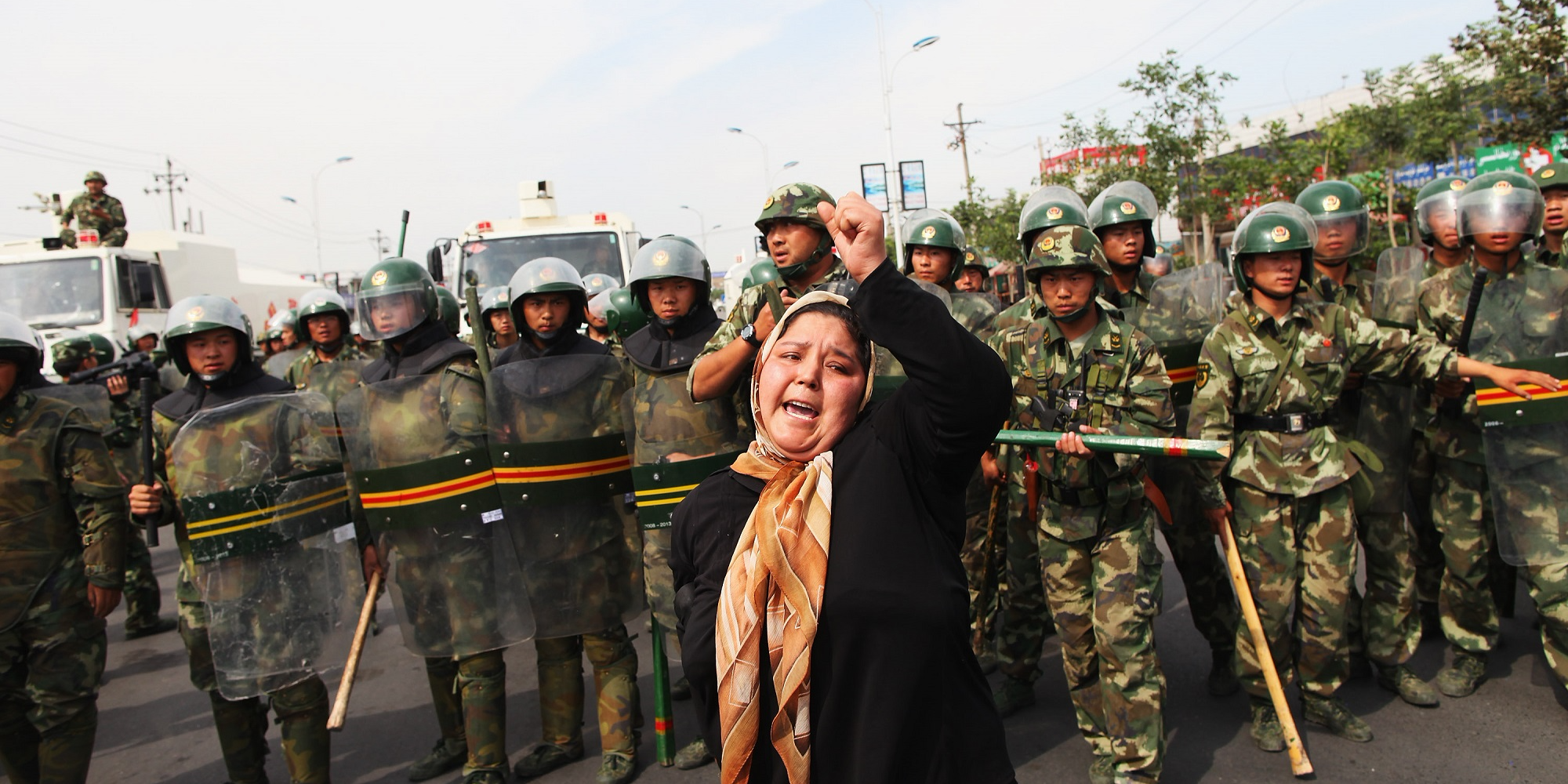- China has subjected its Uighur population, a majority-Muslim ethnic minority, to an unprecedented amount of surveillance and policing.
- Beijing has insisted that this helps counter terrorism and prevent religious radicalism.
- But earlier this week Pakistan’s federal minister openly criticized those policies, saying that they actually fuel religious extremism.
- It is the strongest condemnation of China’s actions from a Muslim ally yet.
- Pakistan is China’s closest ally in the Muslim world.
Pakistan, China’s closest ally in the Muslim world, openly criticized its treatment of its Uighur population, a majority-Muslim ethnic minority living in the western Chinese region in Xinjiang, earlier this week.
It marks the strongest condemnation of China’s repression of the population yet.
Noorul Haq Qadri, Pakistan’s federal minister for religious affairs, warned that Beijing’s strict regulation of Uighur activity fuels extremism rather than counters terrorism, Pakistani media reported.
“The placement of restrictions increases the chances of an extremist viewpoint growing in reaction,” Qadri told China’s ambassador to Pakistan, Yao Xing, on Wednesday according to Dawn newspaper.
His comments directly challenge China's justification of its crackdown on Xinjiang - known to Uighurs as East Turkestan - which are that it counters terrorism and is "training" people to avoid religious extremism.

Qadri on Wednesday also called for a softer approach from Beijing to curb intolerance and promote religious harmony in Xinjiang, Pakistan's The Nation newspaper reported.
He also proposed for Pakistani religious scholars to visit Xinjiang.
Yao appeared to agree, reportedly saying: "Exchange of viewpoints between religious scholars of both countries is vital for better interfaith relations."
Yao also invited Qadri to visit China, Dawn reported, although it's not clear whether this would entail a trip to Xinjiang.

Rights activists in turn have accused China of imprisoning up to 1 million Uighurs in detention centers or re-education camps, and citing bogus excuses - from changing the time on a watch to growing a beard - for doing so.
Li Xiaojun, a spokesman for China's state council information office, told reporters last week that sending Uighurs to detention centers was "not mistreatment," but "to establish professional training centers, educational centers."
"If you do not say it's the best way, maybe it's the necessary way to deal with Islamic or religious extremism," Li said, according to Reuters. "Because the West has failed in doing so, in dealing with religious Islamic extremism."
"Look at Belgium, look at Paris, look at some other European countries," he added, referring to terrorist attacks in Brussels and Paris carried out by Islamic extremists in 2015 and 2016. "You have failed."
Beijing has also repeatedly insisted that Xinjiang residents lived in harmony and enjoyed religious freedom.

The strongest criticism from China's biggest Muslim ally
Whether China will allow Islamic scholars into Xinjiang is not clear, and the likelihood of its curbing its surveillance on Uighurs is unlikely - Beijing told the UN human rights chief, Michelle Bachelet, to back off after she called for international monitors to be let into Xinjiang earlier this month.
But the fact that Pakistan brought up the Uighur issue to China is worth noting. Qadri's comments marked the strongest criticism China has received from a Muslim nation over its Uighur policies.
Experts have told Business Insider that this is likely because they don't want to jeopardize their economic relationships with China - particularly as China pours more and more money into the Belt and Road Initiative, which aims to link China to more than 70 countries around the world via railroads, shipping lanes, and other infrastructure.

Turkey spoke out against China's treatment of Uighurs in 2009 and 2015, which resulted in Beijing repeatedly warning Istanbul not to "twist facts" or "poison ties and derail cooperation" between the two countries.
Whether Islamabad will suffer the same fate is not clear. Pakistan is China's biggest economic ally in the Muslim world, with the two countries forming in 2013 the China-Pakistan Economic Corridor - a massive $62 billion partnership consisting of transport and energy projects.
China has invested between $1 trillion and $8 trillion in its BRI deals around the world, according to the Center for Strategic and International Studies. The BRI is one of Xi Jinping's pet projects.

